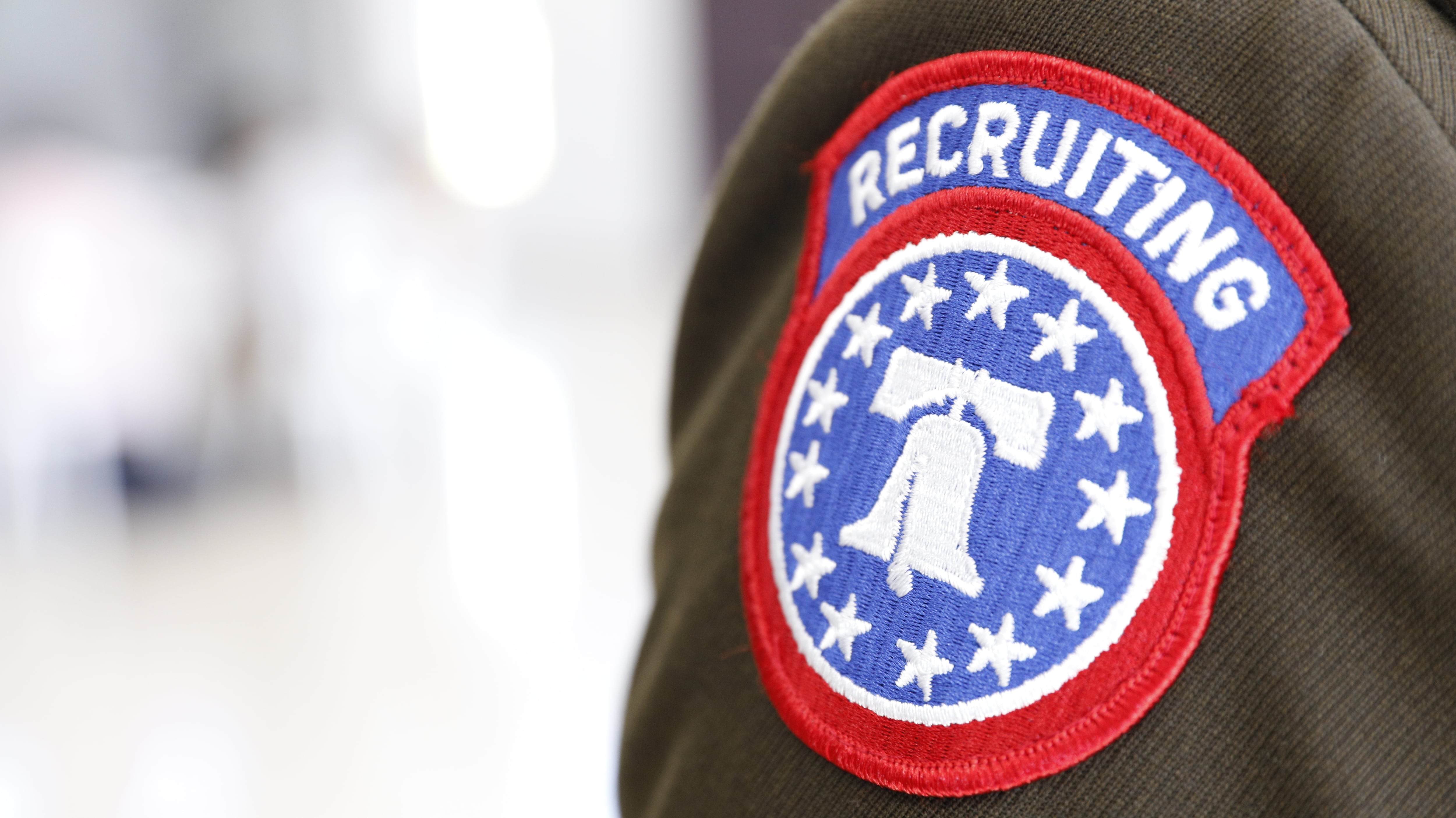Throughout the week, noncommissioned officers across the Army have received notices through their branch managers and other officials that the service needs more recruiting NCOs — and it needs them fast.
According to requisition emails posted to social media channels like Army Reddit, the Army is seeking volunteers to attend recruiting school as soon as Nov. 6, and has waived a host of standing qualifications in order to boost attendance. But other users reported receiving notifications for involuntary orders directing them to attend the course at Fort Knox, Kentucky.
After public outcry about the move and instruction from Gen. Randy George, the service’s chief of staff, the Army’s top personnel officer, Lt. Gen. Doug Stitt, spoke with reporters Wednesday and apologized “to the soldiers and the families that received this last-minute notification” and told reporters “that mistake is mine.”
Col. Dave Butler, a spokesperson for George, said that when the Army chief of staff “caught wind of how this was communicated to members of the force, he immediately directed the Army reassess this effort. He directed the staff to get commanders involved in the process and take into consideration operational readiness, the soldiers, and their families.”
According to Stitt, the sudden need emerged when the Army discovered it faced a recruiter shortfall due to “errors” in its forecasted recruiter strength — the three-star claimed the unspecified forecasting failures “have been fixed.” He declined to link the shortfall to Recruiting Command’s ongoing purge of non-performing recruiters, but rather attributed it to a multitude of factors including “an uptick in no-shows” at the Army Recruiting College.
The Army hopes to source an additional 800 attendees for the November and December courses at the recruiting school. But Stitt emphasized that officials will consider individual hardships when meting out assignments, even if it means not filling all 800 seats.
“If a soldier has a life situation, or a family situation, or professional situation that the chain of command, or their career manager and Human Resources Command is not identifying, we’re going to talk to that soldier … we’re going to work through this to ensure that we have the right NCOs at the right time,” he added.
Stitt and his enlisted advisor, Sgt. Maj. Christopher Stevens, said the service has expanded its cash and career incentives to reward those who complete these short-notice assignments — regardless of whether they volunteer.
Stevens said that in addition to a one-time lump sum bonus of $5,000 available to volunteer Army-selected recruiters who complete recruiter training by February, any sergeant who completes the school and successfully reports to their recruiting assignment will be promoted to staff sergeant. That promotion will occur regardless of the soldier’s promotion points, time-in-grade, or completion of professional military education — so long as the soldier’s personnel file is not “flagged,” blocking them from favorable actions.
In addition to volunteer bonuses and sergeant promotions, Stevens announced that staff sergeants selected in the current wave of recruiter assignments will earn “meritorious promotion” to sergeant first class if they secure 24 recruits who ship to basic training in a 12-month span — regardless of their position on their career field’s promotion order of merit list — as long as their evaluation board found them fully qualified.
After the interviews, Army G-1 spokesperson Maj. Shahin Uddin said “everyone” who attends Army Recruiting College in November or December will receive an unspecified additional bonus. Uddin did not have more details about the financial incentive, however, and he was unable to immediately provide policy documents detailing the new suite of benefits.
RELATED

Stitt, also an architect of the service’s pending recruiting reforms, explained that the scramble to secure more recruiters is necessary to “sustain our momentum into 2024.” He said his team is working with Recruiting Command “to lay out career paths … for the implementation of 42T,” the new all-volunteer recruiting job that will someday supplant the existing recruiting personnel model.
“It’s not lost on me, the impact that this could have on a service member and their family,” Stitt said of the current wave of old-school assignments. “We’re working by name, by individual to ensure we identify the right noncommissioned officers to serve in our Army’s top priority … the recruiting enterprise.”
Davis Winkie covers the Army for Military Times. He studied history at Vanderbilt and UNC-Chapel Hill, and served five years in the Army Guard. His investigations earned the Society of Professional Journalists' 2023 Sunshine Award and consecutive Military Reporters and Editors honors, among others. Davis was also a 2022 Livingston Awards finalist.





